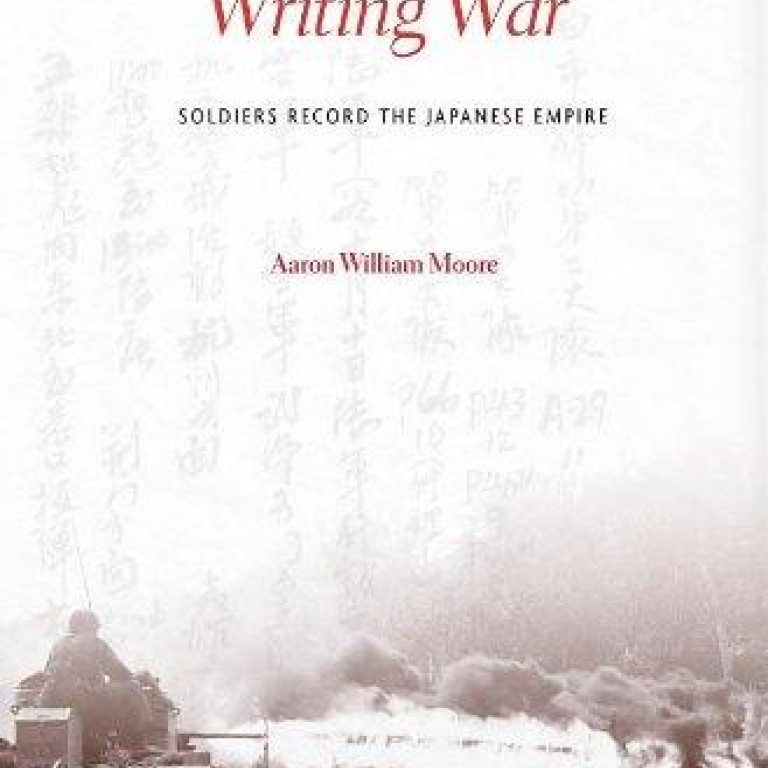
Book: Writing War, by Aaron William Moore
Soldiers of all nations fighting in the Far East during the second world war were partly radicalised to commit atrocities by their own diaries, according to a new book by a historian at the University of Manchester.
by Aaron William Moore
Harvard University Press
Soldiers of all nations fighting in the Far East during the second world war were partly radicalised to commit atrocities by their own diaries, according to a new book by a historian at the University of Manchester.

Several of the personal accounts were written in the aftermath of the December 1937 Rape of Nanking, when hundreds of thousands of Chinese civilians and disarmed soldiers were murdered by troops of the Imperial Japanese Army.
A soldier named Ouchi Toshimichi was one of the first into Nanking after the surrender and confided in his diary: "The Chinese army has become really despicable to me; I want us to wipe them out as quickly as possible."
"The state did not 'brainwash' these people into committing atrocities," Moore writes. "Rather, it was a number of factors, including their diaries, which they used to build up a rationale which normalised acts of extreme violence."
The same attitudes existed on the other side of the frontline. John Browning, an American artist and former Boy Scout, witnessed the beheading of a Japanese captive and wrote in his diary: "War is war, and the Geneva Red Cross Convention … is a long, long way from the frontline. There is but one law here, KILL, KILL, KILL!"
Moore traces his interest in the subject to an undergraduate study programme in Japan, when he met an archery teacher who had fought in China. "His involvement in that terrible conflict had always fascinated me, as he was a very generous, if stern, man," Moore recalls. "The war is, of course, interesting to me, but the personal nature of these accounts is what kept me going for over a decade."
His research indicates that soldiers created justifications in their diaries for committing acts of violence and accepted them as true and accurate accounts, as opposed to a work of fiction.
"You have to understand the long history of 'factual' record-keeping that these men were exposed to in reportage and military culture," Moore writes. "They spent a lot of time generating anger by listing enemy atrocities, giving themselves reasons to seek revenge and reproducing propaganda about themselves and the enemy."
The historian believes that soldiers' diaries can be dangerous because they are seen by their writers as the "repositories of unchangeable truths".
"These soldiers often come from ordinary backgrounds, but through their writing established a rationale for extreme behaviour, getting angrier and angrier," he says.

